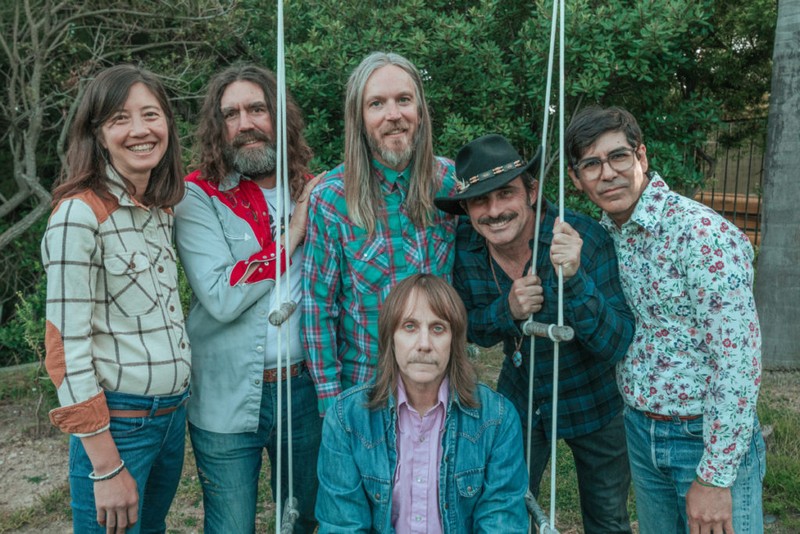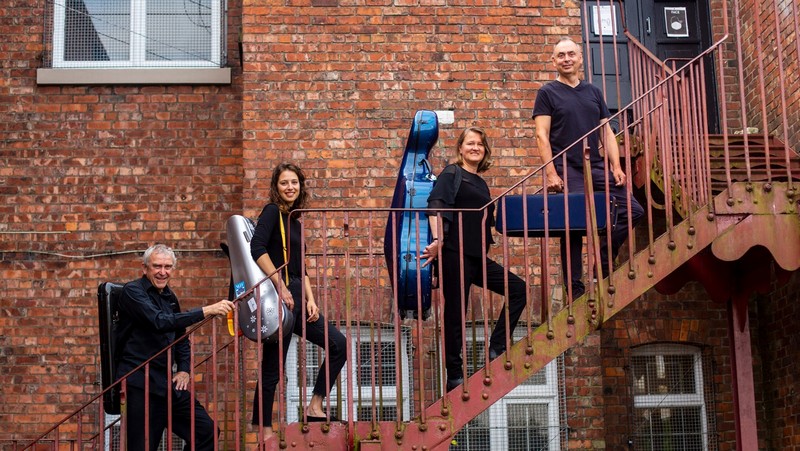 Rare is the artist who does their best work when they are on top of the world, when all is going well, and they are happy and fulfilled. Sufjan Stevens has explored a wide and disparate subject matter, from the folky Psalm-like spirituality of Seven Swans, the unique geographic and diverse cultural expressions of Illinois, to the deeply personal and anxious thoughts that he wed with his most electronic, extroverted pop on The Age of Adz, and his sweeping look at all things “America” from “Video Games” to the apocalypse, and the disillusionment that accompanies the loss of faith in trusted institutions on his last fully engaged solo work, 2020’s The Ascension. And that doesn’t include his numerous side-projects, sound experiments, and collaborations, of which there are many. Still for an artist renowned for wearing his proverbial heart on his sleeve, critics and fans have universally agreed that Stevens best and most powerful work is the 2015 album, Carrie & Lowell, a deeply reflective consideration of his relationship with his mother who died a couple years earlier, a strong contender on many year-end best-of lists.
Rare is the artist who does their best work when they are on top of the world, when all is going well, and they are happy and fulfilled. Sufjan Stevens has explored a wide and disparate subject matter, from the folky Psalm-like spirituality of Seven Swans, the unique geographic and diverse cultural expressions of Illinois, to the deeply personal and anxious thoughts that he wed with his most electronic, extroverted pop on The Age of Adz, and his sweeping look at all things “America” from “Video Games” to the apocalypse, and the disillusionment that accompanies the loss of faith in trusted institutions on his last fully engaged solo work, 2020’s The Ascension. And that doesn’t include his numerous side-projects, sound experiments, and collaborations, of which there are many. Still for an artist renowned for wearing his proverbial heart on his sleeve, critics and fans have universally agreed that Stevens best and most powerful work is the 2015 album, Carrie & Lowell, a deeply reflective consideration of his relationship with his mother who died a couple years earlier, a strong contender on many year-end best-of lists.
In a post on his webpage on the day, Javelin released, Stevens dedicated this album to his long-time partner, Evans Richardson, who died in April, describing him as “the light of my life,” a “gem of a person, full of life, love, laughter, curiosity, integrity and joy.” While there have been plenty of hints and innuendos, this dedication was the first time the artist has spoken directly about his sexual orientation. And according the the label’s press release, this record marks the first time since Carrie & Lowell, that he’s returned to “full singer-songwriter mode.” And while most of the ten official tracks do begin with Steven’s in folky, finger-picking mode on his acoustic guitar or singing quietly over a simple piano. So, while many of these songs may have their origins with Stevens’ in quieter, folk singer mode, those listeners familiar with his in-home, layered, productions where he plays most of the instruments will hear plenty of smartly orchestrated pop productions that he built from the ground up, with the added vocal chorus of Hannah Cohen, Megan Lui, and Adrienne Marie Brown, and a couple others on a few tracks.
Tracks like the first single, “So You Are Tired,” and the second, “Will Anybody Ever Love Me,” where the female chorus and a sense of Stevens’ careful blend of woodwinds and synths provide a light orchestrated pop feel, fit that description. But while the opening track, “Goodbye Evergreen,” an unadulterated love song to Richardson, begins in tender, grief-stricken territory, at mid-song the orchestration and chorale bring on the noisy bombast, until things settle into more of groove of repeated “you know I love you”’s, turning grief and loss to uplift and affirmation. That is followed by “Running Start,” largely framed by acoustic finger picking, with vocal and synth crescendos on regular intervals of “ooh-ooh’”s, and a bright poppy keyboard that insists on taking these choral leanings into pop song territory.
In “Everything That Rises,” Stevens cries out “Jesus lift me up to a higher plane,” and the music here, like a slow gospel number by an orchestra does everything it can to make that happen, building steadily around the vocal chorus. “Genuflecting Ghost” returns to folky singer-songwriter mode, with the chorus ever-present and some haunting strings and percussion that lean into some light trance electronica. In “My Red Little Fox” is another somber ballad, this time centered on electronic piano as Stevens come to terms with the physical absence that accompanies loss, asking first to “kiss me with the fire of the gods,” then to “kiss me like the wind,” and then finally settling for a “kiss from within”.
In the brief title track, over a simple finger picked acoustic, Stevens regrets some harsh words said in a moment of passion, acknowledging that “it’s a terrible thought/to have and to hold.” But then it segues nicely into “Shit Talk,” the longest track here coming in at 8 & a half minutes, a song that seeks to put an end to emotional arguments, then opens into repetitive choral circles pleading for the object of desire to “hold me closely/hold me tightly, lest I fall,” as “I don’t wanna fight at all,” for “I will always love you.” This song does feature the acoustic and electric guitar playing of The National’s Bryce Dessner, but Stevens weaves them into the sonic stew to nice effect. The last third of the song is a lovely orchestral resolve, saying what words can never fully express. Then after nine carefully crafted songs of his own, Stevens closes out the album with an airy cover of a Neil Young deep track for his classic Harvest, album recorded over 50 years ago, drawing comfort from the idea that “no one else has your part,” we all have a role to play, “all God’s children in the wind/take it in and blow hard.”
Of course, not every artist dealing with loss and grief has produced great art, but here Stevens finds a way to express his deepest feelings about the passing of his lover and friend, and his own life now possessed with longing and absence, and delivers a rich musical tapestry that draws on his past strengths, and seeks to find new avenues of expression so he’s not trapped down a one way cul de sac. Javelin with its delicate poetic wording, and satisfying melodic gifts expanded by the harmonic chorale and a keen gift for technical orchestration, one sound upon another to create an engaging musical gift, manages to take Sufjan Stevens’ musical art to its sweet spot between folk and electronic pop.
Brian Q. Newcomb
For more of Brian Q. Newcomb’s music reviews, check out The Fire Note
Other reviews you might enjoy:
- The Ascension (Sufjan Stevens) – music review
- A Beginner’s Mind (Sufjan Stevens & Angelo De Augustine) – music review
- Pleasure by Feist – music review

The Fire Note started to create a simple place that could showcase records that we liked. Nothing more, nothing less. The focus has always been about the album and the experience that a great record creates. The Fire Note Webzine builds on this idea by offering an array of content that is all about the enjoyment of music, its pulse and energizing attitude.





